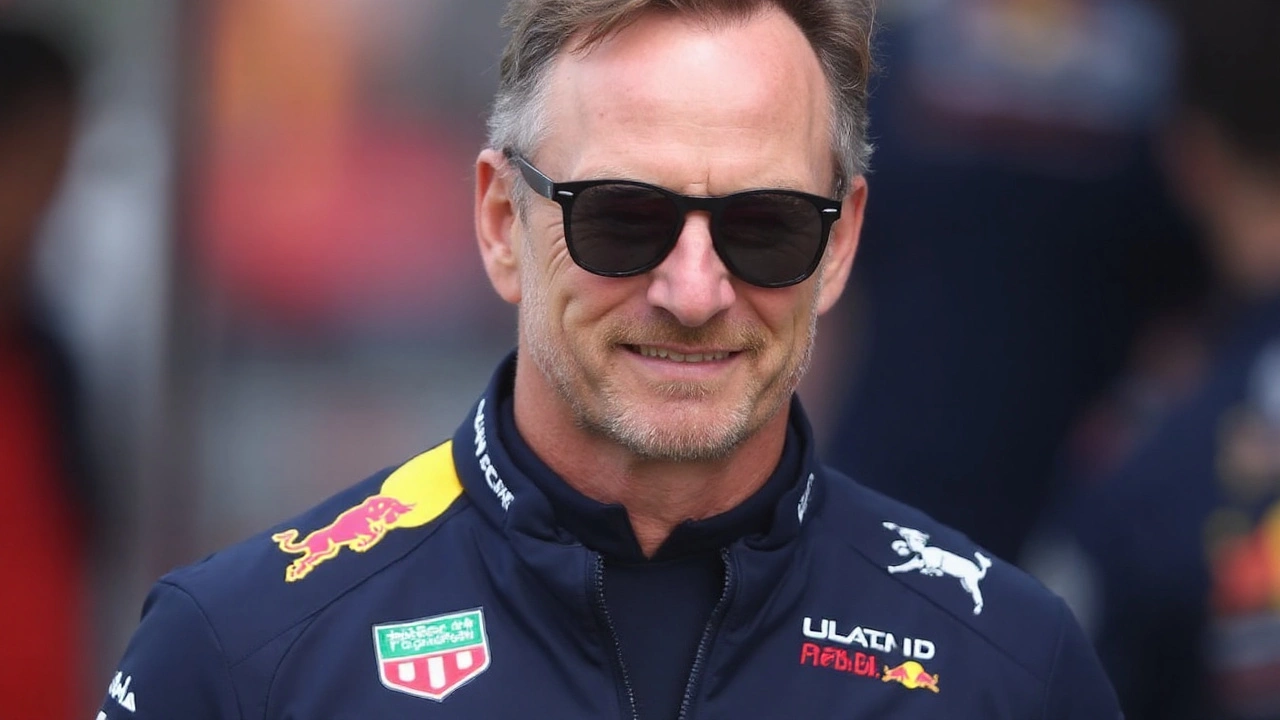The Exit Deal and Its Numbers
When Red Bull finally signed the paperwork on Monday, the headline was impossible to ignore: Christian Horner is leaving the team he built for two decades and taking more than £80 million with him. The sum dwarfs the average F1 salary and places the payout among the largest severance packages ever seen in the sport.
Horner’s contract was slated to run until 2030, meaning the team was still on the hook for five years of pay. Sources say his base salary topped out at just under £9 million in 2023, and bonuses would have risen after Max Verstappen’s titles. When Red Bull’s lawyers and Horner’s representatives sat down, they calculated every guaranteed payment, deferred bonus, and image‑rights clause, pushing the final figure past the £80 million mark. Early estimates of £50‑60 million proved naïve; the full package includes pension contributions, stock options, and a clause that lets Horner jump back into F1 within twelve months.
Laurent Mekies, who came up through the Racing Bulls program, was promoted on the spot to fill the dual CEO‑team‑principal role. Mekies inherits a squad that, after a spectacular 2023‑24 run, is now watching Verstappen slip out of championship contention in 2025. The timing of Horner’s exit fuels speculation that Red Bull wanted a clean slate to reset its strategic direction.
What Horner Left Behind
Horner didn’t just steer a race car; he built a racing empire from a modest start‑up in Milton Keynes to a powerhouse that dominated the sport. Under his watch, Red Bull claimed 14 World Championships – eight for drivers and six for constructors – and a staggering 124 race victories. Those trophies were paired with a commercial juggernaut: multi‑year deals with Visa, Cash App, and a host of other global brands that turned the team’s garage into a marketing magnet.
Beyond the numbers, Horner’s real legacy may be the people he recruited. Engineers, strategists, and pit‑crew members still speak of the “Horner culture” – a blend of relentless data‑driven improvement and a laid‑back, almost family‑like atmosphere. Former staff credit him with giving young talent a seat at the table, a practice that helped Red Bull stay ahead of the innovation curve.
In his farewell statement, Horner was unapologetically proud: “Leading Red Bull Racing has been an honour and privilege… My biggest satisfaction has been assembling and leading the most amazing group of talented and driven individuals.” Those words echo a career that was as much about people as it was about podiums.
Rumors are already swirling about his next move. Alpine, the French outfit run by his friend Flavio Briatore, fits both geographically – it’s close to Horner’s Oxfordshire home – and culturally, given their shared emphasis on driver development. The “return‑to‑F1” clause in his exit agreement means the door is wide open, and a switch to Alpine could shift the competitive balance once again.
For Red Bull, the challenge now is two‑fold: keep the car fast enough to stay in title fights and manage the cultural shift that comes with new leadership. Mekies, who spent years in the technical side of the operation, promises a “data‑focused but human‑centered” approach. Whether that will translate to on‑track success remains to be seen, but the sports world will be watching every lap.
